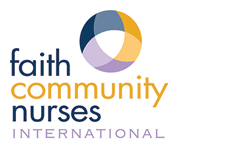Abstract
Abstract
Hospital readmissions affect over 80 percent of all Medicare enrollees. Hospitals have a responsibility to their Medicare patients to keep them safe after discharge in their homes and communities. With changes in the Medicare reimbursement model, hospitals are examining efficient methods of decreasing avoidable re-admissions. A Faith Community Nurse Transitional Care Program may be just the answer to improve patient’s discharge experience, ensure post-discharge support and reduce re-hospitalization.
Methods
In preparations for testing a Faith Community Nurse Transitional Care Program Model, a systematic integrative review was needed. Using PRISMA, a search was done, inclusion criteria identified, and articles retrieved. Sixty-two articles were collected, compared, and combined using a descriptive matrix template.
Results
Chronic diseases such as heart failure, COPD, diabetes mellitus, cancer, stroke and/or psychosis, depression, and lower mental health status have the highest risks. Patient variables include Medicare and Medicaid payer status, markers of frailty and elderly with complex medical, social and financial needs. Lack of caregiver or social support, poor health literacy, inability to navigate the health care system, are non-clinical needs leading to readmissions. Methods or interventions leading to decreased readmissions are early discharge planning, case management, self-management skills enhanced, medication education, and standardized tools.
Conclusions
A systematic integrative review process identified factors that increase and reduce hospital readmissions. The key findings revealed that certain disease, patient, and non-clinical variables can predict patient’s risks for readmission. Interventions done before discharge and after discharge can impact hospital readmissions. A new Faith Community Nurse Transition Care Program meets many of the criteria for decreasing readmission as identified in the literature. In addition, Faith Community Nurses can provide whole health care, which includes care of the physical, psychological, social, and spiritual dimensions of the person.
First Page
1
Included in
International and Area Studies Commons, Other Nursing Commons, Public Health and Community Nursing Commons, Religion Commons, Social Work Commons
